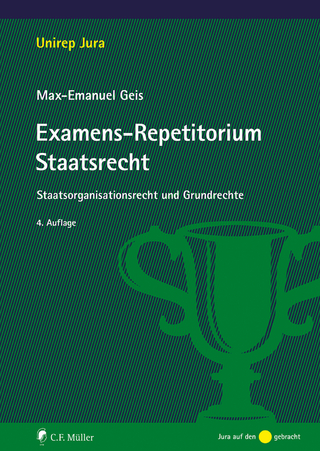
Health as a Human Right
Cambridge University Press (Verlag)
978-1-108-48364-3 (ISBN)
Does human rights law work? This book engages in this heated debate through a detailed analysis of thirty years of the right to health - perhaps the most complex human right - in Brazil. Are Brazilians better off three decades after the enactment of the right to health in the 1988 Constitution? Has the flurry of litigation experienced in Brazil helped or harmed the majority of the population? This book offers an in-depth analysis of these complex and controversial questions grounded on a wealth of empirical data. The book covers the history of the recognition of health as a human right in the 1988 Constitution through the Sanitary Movement's campaign and the subsequent three decades of what Ferraz calls the politics and judicialization of health. It challenges positions of both optimists and sceptics of human rights law and will be of interest to those looking for a more nuanced analysis.
Octávio Luiz Motta Ferraz is a Reader in Transnational Law at King's College London, where he co-directs the Transnational Law Institute, and a Senior Global Fellow at Fundação Getúlio Vargas in São Paulo. He holds an LLB and MPhil in Law (University of São Paulo), an MA in Medical Ethics and Law (King's College London), where he won the Benjamin Geijsen prize and a PhD in Law (University College London), which he did under a Graduate School Scholarship. Previously he was a senior research officer to the UN Special Rapporteur for the right to health, an Associate Professor at Warwick Law School and practiced law in Sao Paulo, Brazil, mostly in the fields of corporate public law and medical law. He is still a member of the Brazilian Bar and contributes regularly to the Brazilian press. He has worked as a consultant to the World Bank and NGOs on human rights, the rule of law and development issues.
1. Introduction: does the right to health matter?; Part I. The Politics of the Right to Health: 2. Health becomes a right in Brazil; 3. The constitution works; 4. Two Brazils; Part II. The Judicialization of the Right to Health: 5. The judicialization of health in numbers; 6. How the haves come out ahead in health litigation; 7. Islands of rights revolutions?; 8. Unequal justice: what is litigated, why, and who really benefits from health litigation in Brazil?; Part III. Conclusion: What Role for Courts?: 9. To interfere or not to interfere: the court's dilemma; Bibliography; Index.
| Erscheinungsdatum | 15.01.2021 |
|---|---|
| Reihe/Serie | Cambridge Studies in Law and Society |
| Zusatzinfo | Worked examples or Exercises; 7 Tables, black and white; 6 Maps; 56 Line drawings, black and white |
| Verlagsort | Cambridge |
| Sprache | englisch |
| Maße | 160 x 235 mm |
| Gewicht | 670 g |
| Themenwelt | Recht / Steuern ► EU / Internationales Recht |
| Recht / Steuern ► Öffentliches Recht ► Verfassungsrecht | |
| Recht / Steuern ► Privatrecht / Bürgerliches Recht ► Medizinrecht | |
| Sozialwissenschaften ► Politik / Verwaltung | |
| ISBN-10 | 1-108-48364-X / 110848364X |
| ISBN-13 | 978-1-108-48364-3 / 9781108483643 |
| Zustand | Neuware |
| Informationen gemäß Produktsicherheitsverordnung (GPSR) | |
| Haben Sie eine Frage zum Produkt? |
aus dem Bereich


